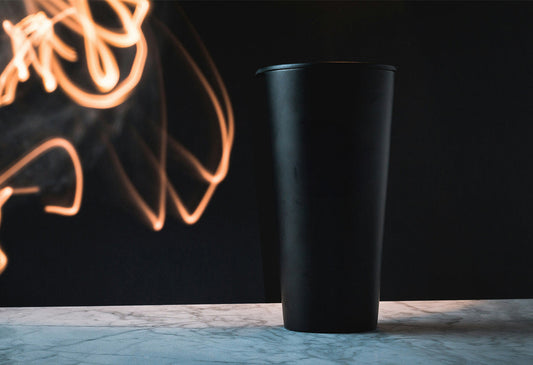Immuno-Rejuvenation: Untapped Health Potential

When I first learned about Functional Medicine, one of the most appealing things for me was that it views health and the body as a complex web. It doesn’t silo each body part, it looks at the organic interplay between every body part. A great example of this is how the microbiome influence everything from energy metabolism to brain and immune function. My friend and mentor Dr. Jeffrey Bland, the father of Functional Medicine, introduced me to another I’ve been hearing about another hidden dimension of health. This new concept, called immuno-rejuvenation, explains why so many people continue to struggle with health despite making positive changes in their lives.
Your Whole Body Is Your Immune System
We’ve known for some time that lungs, intestines, skin, and other vital organs have their own unique immune cells. These special cells can live their entire lives in one tissue, and dedicate 100% of their time to defending it. There is also a universe of highly specialized immune cells coursing through your bloodstream right now, and your brain even has its own separate immune system, too.
This is a big deal when it comes to optimizing health and enhancing longevity. These communities of immune cells affect how well you age, how you feel, and how you respond to life’s challenges now AND in the future.
Your immune system is where the most basic changes in your health and function are coordinated, especially as you get older. Our immune cells are genetically programmed by our past experiences (and those of our ancestors), and after they interact with our environment and react to our lifestyle choices, they use the intelligence they’ve gathered to bring our genetic operating systems up to date. [1]
Aging Starts With Immune Cells
Peak performance, comfort, and immunity can diminish with aging. Discoveries in genomic science are breaking new ground in understanding how and why our bodies age. It turns out that we age because our cells age—and the way we eat, live, move, rest, and manage stress (or don’t) has a lot to do with it.
This may be especially true for our immune cells. Top researchers like epigenetic aging expert Steve Horvath, PhD have proposed this powerful idea: loss of function in our immune cells with aging may determine how fast we age. [2] A study conducted by Dr. Horvath’s team recently found that rejuvenating the immune tissue in the thymus gland decreased participants’ epigenetic age (a functional rather than chronological measure of age). This is truly inspiring, because the thymus is integral to immune activity in young children, yet shrinks and loses function as we get older. Dr. Horvath’s achievement suggests that this may not be necessary.
What Is Immuno-Rejuvenation?
Cell rejuvenation is your body’s way of clearing out aged and damaged cells that no longer function well and replacing them with invigorated ones. [3] In the simplest form of rejuvenation, a cell sorts out its waste and damaged parts, and then divides into a refreshed cell and a collection of garbage. It’s recycling at a microscopic level! Since immune function is central to healthy aging, immuno-rejuvenation of hardworking immune cells is critically important.
Decrepit cells in need of rejuvenation are worse than dead weight, because they have a pro-aging influence on other cells. Some researchers even refer to them as “zombie cells.”[4] Over time, accumulation of aged cells can encourage cardiovascular disease, Alzheimer’s, or other serious conditions to develop.[5]
The Trick To Immuno-Rejuvenation
Immuno-Rejuvenation is like alchemy for immune cells, transforming aged cells into robust newbies. Yet immuno-rejuvenation is not magic—it’s a totally natural and normal body process. The trick is creating the right conditions for it to take place.
So how do you trigger cell rejuvenation? The ways our ancestors did it aren’t fun, because they involve extreme fasting or engaging in extreme physical effort, either of which could be hazardous for those with health concerns. The key to immuno-rejuvenation is simple, though not always easy: don’t interfere with it. Eating too much, too frequently, too late in the day, making unhealthy food choices, and being sedentary are the most common ways of sending a STOP signal to rejuvenation.
But there’s a tasty way to activate immuno-rejuvenation. Certain valuable food nutrients reinforce the positive rejuvenation messaging we send our cells through our daily eating habits and physical activity.
The Big Three
You’ve probably heard of these components of food before, never realizing their importance to immune cell rejuvenation.[6] They are: specific phytonutrients (especially polyphenols like quercetin and tea catechins), specific probiotic bacteria, and omega-3 fats.
What these specialized food nutrients do for rejuvenation of aging immune cells is remarkable. Here’s what some studies tell us:
- POLYPHENOL PHYTONUTRIENTS: Polyphenols like those in grapes, cocoa, and tea enhance the efficiency of immune cells, yet prevent them from becoming overactive (implicated in undesirable “inflamm-aging”).[7,8,9,10] Others like quercetin, rutin, fisetin, luteolin, and curcumin help trigger cell rejuvenation, and quercetin, hesperidin, and rutin can act as prebiotics that feed a healthy gut microbiome—so critical for immunity.[11,12,13,14]
- PRE- and PROBIOTICS: For good immune health, we need to consider the role of prebiotics (food for our gut microbes) and probiotics (the microbes themselves). Prebiotics include dietary fiber as well as plant phytonutrients including polyphenols, and have been linked to improved immune balance.[15] Probiotics have demonstrated impressive effects along the entire spectrum of immune function. Consider this: many kids are developing allergies these days, while older people are more prone to inflammation. Certain Lactobacillus probiotics (like Lactobacillus casei ssp. rhamnosus GG) appear to encourage immune tolerance in children, while others (e.g., L. delbrueckii ssp. bulgaricus and L. casei Shirota) show benefits in older individuals, helping key immune cells (called T cells and natural killer cells) zero in on the proper targets to promote overall immune balance.[16,17,18]
- OMEGA-3s: Omega-3 fatty acids (especially eicosapentaenoic acid and docosahexaenoic acid, EPA and DHA) get woven into the fabric of immune cells, aiding their interactions with other cells and even influencing which types of immune cells multiply the fastest—for a powerful impact on how well the immune system meets threats.[19] Omega-3s have also been associated with greater telomere length in immune cells, an important measure of how successfully they are aging. [20,21] In addition, fish oil bolsters the effectiveness of the immune response in older people, simultaneously bettering immune offense AND defense.[22] Ideal modulation of immunity like this is rarely seen in research, yet it comes up repeatedly in omega-3 studies!
How Does This Fit into Immuno-Rejuvenation?
Your immune system is constantly responding to your environment. It learns from experience and catalogues new immune memories. To keep up with this change, it must be fluid and flexible, and come up with the right immune cells you need in the right balance.
The Big Three food nutrients support that process, helping remodel your immunity for optimal function each day. Just remember that eating these things works best within the framework of an active lifestyle and a nutrient-dense diet that regulalry trains your immune system to function properly.
Takeaways
- Aging begins with the immune system, which can maintain its effectiveness and balance (of offense vs. defense) over the course of your life or lose it—depending on everything you do, eat, and experience.
- Immuno-rejuvenation is the natural way immune cells renew themselves and get rid of junk. But immuno-rejuvenation only takes place when you create the right environment in your body and provide it with the right ingredients.
- Staying active and avoiding overeating invites the rejuvenation of your immune cells to happen, but certain food nutrients actually encourage the renewal process. These nutritional factors additionally help your immune system update itself according to your unique lifestyle. The Big Three food nutrient categories are certain phytonutrients, probiotics, and omega-3 fats.
Throughout my research on immunity and using food as medicine, I learned about Himalayan Tartary Buckwheat. This superfood is an incredible source of the phytonutrients mentioned above, along with additional compounds specifically beneficial for immune modulation. HTB Rejuvenate from Big Bold Health makes it easy to take advantage of Himalayan Tartary Buckwheat on a daily basis in an easy capsule form; it’s something I’ve started using every day as part of my own immuno-rejuvenation protocol.
References:
- Poon MML, Farber D. The Whole Body as the System in Systems Immunology. iScience 2020;23:101509.
- Yousefzadeh MJ, Flores RR, Zhu Y, et al. An aged immune system drives senescence and ageing of solid organs. Nature 2021;https://doi.org/10.1038/s41586-021-03547-7.
- Prasnikar E, Borisek J, Perdih A. Senescent cells as promising targets to tackle age-related diseases. Ageing Res Rev 2021;66:101251.
- Sánchez Alcázar JA, Oropesa Ávila M, Andrade Talavera Y, et al. Stabilization Of Apoptotic Cells: Generation Of Zombie Cells. Redox Biol 2015;5:416.
- Rea IM, Gibson DS, McGilligan V, et al. Age and Age-Related Diseases: Role of Inflammation Triggers and Cytokines. Front Immunol 2018;9:586.
- Sharma R, Padwad Y. Nutraceuticals-Based Immunotherapeutic Concepts and Opportunities for the Mitigation of Cellular Senescence and Aging: A Narrative Review. Ageing Res Rev 2020;63:101141.
- Petersen KS, Marnewick JL, Smith C. Grape polyphenols corrects ageing-related detriments in neutrophil functionality via modulation of specific molecular targets. Inflammopharm 2018;26(5):1349-1358.
- Monagas M, Khan N, Andres-Lacueva C, et al. Effect of cocoa powder on the modulation of inflammatory biomarkers in patients at high risk of cardiovascular disease. Am J Clin Nutr 2009;90(5):1144-1150.
- Sharma R, Sharma A, Kumari A, et al. Consumption of green tea epigallocatechin-3-gallate enhances systemic immune response, antioxidative capacity and HPA axis function in aged male swiss albino mice. Biogerentol 2017;18(3):367-382.
- Zhang L, Shao WF, Yuan LF, et al. Decreasing pro-inflammatory cytokine and reversing the immunosenescence with extracts of Pu-erh tea in senescence accelerated mouse (SAM). Food Chem 2012;135(4):2222-2228.
- Palmer AK, Xu M, Zhu Y, et al. Targeting senescent cells alleviates obesity-induced metabolic dysfunction. Aging Cell 2019;18:e12950.
- Yousefzadeh MJ, Zhu Y, McGowan SJ, et al. Fisetin is a senotherapeutic that extends health and lifespan. EBioMedicine 2018;36:18-28.
- Li W, Qin L, Feng R, et al. Emerging senolytic agents derived from natural products. Mech Ageing Dev 2019;181:1-6.
- Amaretti A, Raimondi S, Leonardi A, et al. Hydrolysis of the rutinose-conjugates flavonoids rutin and hesperidin by the gut microbiota and bifidobacteria. Nutrients 2015;7(4):2788-2800.
- Shokryazdan P, Faseleh Jahromi M, Navidshad B, Liang JB. Effects of prebiotics on immune system and cytokine expression. Med Microbiol Immunol. 2017 Feb;206(1):1-9.
- Nocerino R, Di Costanzo M, Bedogni G, et al. Dietary Treatment with Extensively Hydrolyzed Casein Formula Containing the Probiotic Lactobacillus rhamnosus GG Prevents the Occurrence of Functional Gastrointestinal Disorders in Children with Cow’s Milk Allergy. J Pediatr 2019;213:137-142.e2.
- Moro-Garcia MA, Alonso-Arias R, Baltadjieva M, et al. Oral supplementation with Lactobacillus delbrueckii subsp. bulgaricus 8481 enhances systemic immunity in elderly subjects. Age 2014;35(4):1311-1326.
- Dong H, Rowland I, Thomas LV, et al. Immunomodulatory effects of a probiotic drink containing Lactobacillus casei Shirota in healthy older volunteers. Eur J Nutr 2013;52(8):1853-1863.
- Fan YY, Fuentes NR, Hou TY, et al. Remodeling of primary human CD4+ T cell plasma membrane order by n-3 PUFA. Br J Nutr 2018;119(2):163-175.
- Farzaneh-Far R, Lin J, Epel ES, et al. Association of marine omega-3 fatty acid levels with telomeric aging in patients with coronary heart disease. JAMA 2010:303(3):250-257.
- Kiecolt-Glaser JK, Epel ES, Belury MA, et al. Omega-3 fatty acids, oxidative stress, and leucocyte telomere length: A randomized controlled trial. Brain Behav Immun 2013;28:16-24.
- Rodacki CDLN, Rodacki ALF, Coelho I, et al. Influence of fish oil supplementation and strength training on some functional aspects of immune cells in healthy elderly women. Br J Nutr 2015;114(1):43-52.







